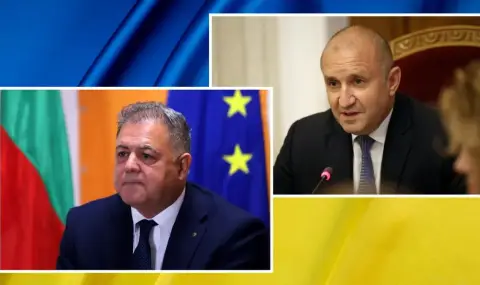The case surrounding the leadership of the Bulgarian embassy in Kiev by Nikolay Nenchev is a litmus test for the general political picture in Bulgaria, as well as for the place of the presidential institution and Rumen Radev personally in this picture.
Let's start with the fact that, according to the constitution, the president can represent Bulgarian foreign policy, but not form it.
This commented on "Facebook" Plamen Dimitrov.
In recent months it has become clear that in terms of
the war between Russia and Ukraine Mr. Radev has an opinion radically different from the official Bulgarian position.
In short – the majority in the National Assembly and the government are in favor of providing military aid to the attacked country, while Radev is against it. This is the first collision, which is why it was more logical for the president to remain silent on the case with our diplomatic representative in Kiev – since he does not share Sofia's official line towards Ukraine, Radev will always be suspected of wanting to impose his views through the persona of the future ambassador to Kyiv and will block any candidacy following the mainstream.
The personal political relations between Rumen Radev and Nikolay Nenchev have a longer history. A few years ago, the two argued over the contract to repair the MiG-29 fighter jets, and also over whether Radev had illegally assigned his future wife to a second employment contract in the Air Force. Who is wrong and who is right in these disputes does not matter, the point is that because of the personal relationship he has with Nenchev, Radev should not speak for the appointment of the former minister and give an assessment of his professional qualities – now it looks like revenge for past insults.
However, all these arguments are valid if Rumen Radev was only a representative figure,
the face of the country as it is under the constitution. It is largely a status beyond politics, far from the micromanagement of statecraft that the appointment of ambassadors refers to. But Radev has bigger ambitions – to be a real political player. The few caretaker governments before 2024 gave him a taste of governance, and sharp conflicts with leaders of leading parties sharply increased his political fervor.
The government probably chose Nenchev for the diplomatic post in Kiev because of his clear political stance in support of Ukraine against Russia, and also because he was the minister of war – an appropriate background in times when military aid is the dominant aspect in Bulgarian-Ukrainian relations. However, Radev does not want Bulgaria to send weapons to Ukraine, i.e. – he is against military cooperation between the two countries and in his eyes the main advantage of Nenchev is reduced to zero – better to develop only diplomatic and economic relations with Kiev, and in that case, what good is a former minister of war with zero diplomatic experience as an ambassador?
Dissatisfied with the small powers granted to him by the constitution, and with the fact that he has recently been deprived by constitutional amendments of his only opportunity to actually govern through caretaker governments,
Radev defends the little remaining territory of his power, which also includes the right to veto the appointment of ambassadors.
Also, it signals that the government must yield to the president for some future important ambassadorial appointment (for example, to Moscow). The message is – you twisted my arms now, but it will be too much if you do it again next time.
More generally, Radev's political ambitions, which exceed his constitutional powers, once again raise the question of the collision between the direct election of the president and his limited power. Now he can always hint – I was elected by a million and a half Bulgarians, and I have to consider Dimitar Glavchev, for whom no one voted. The most logical solution to this contradiction is for the president to be elected by the parliament, as in a number of European parliamentary republics.
